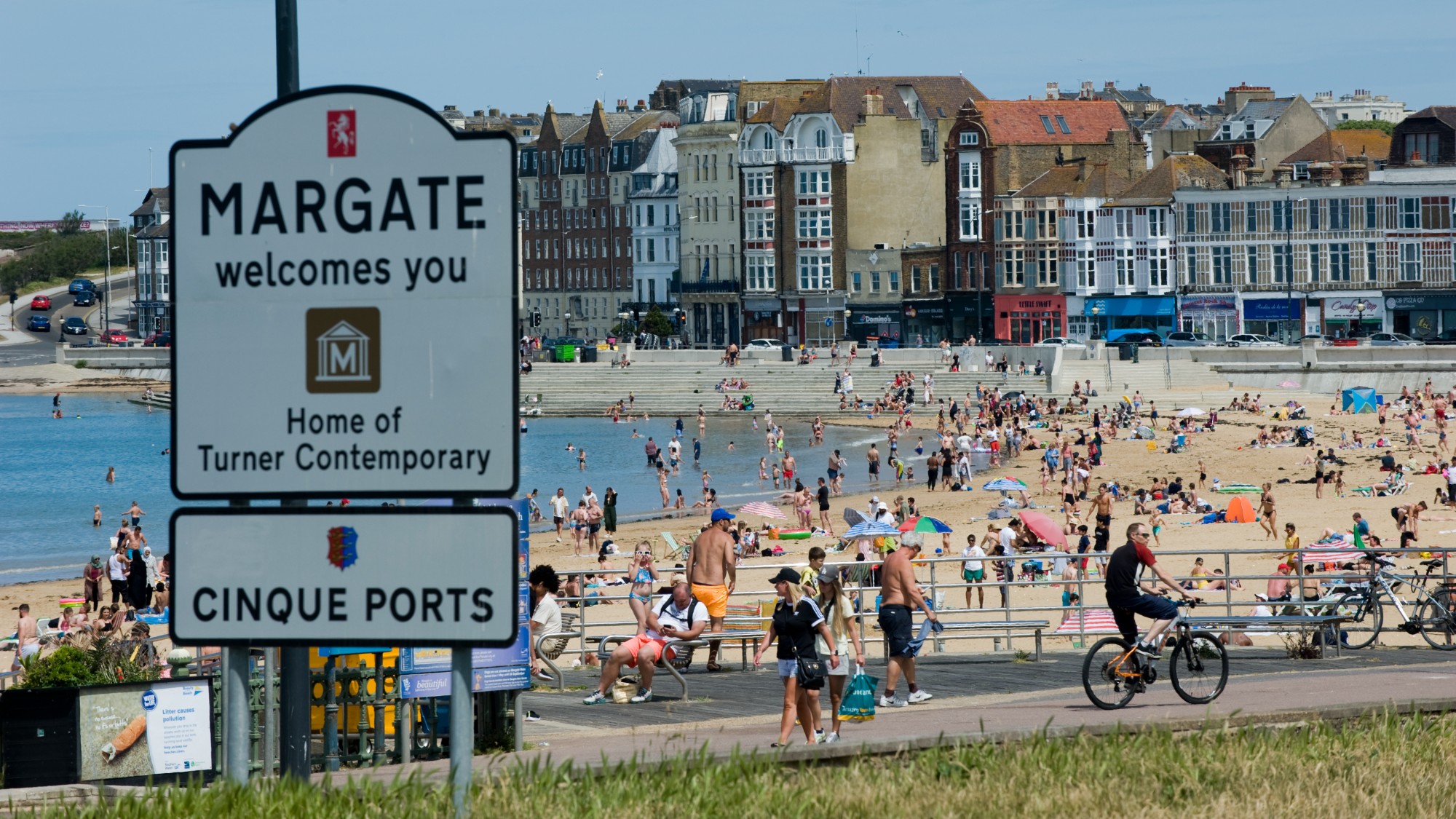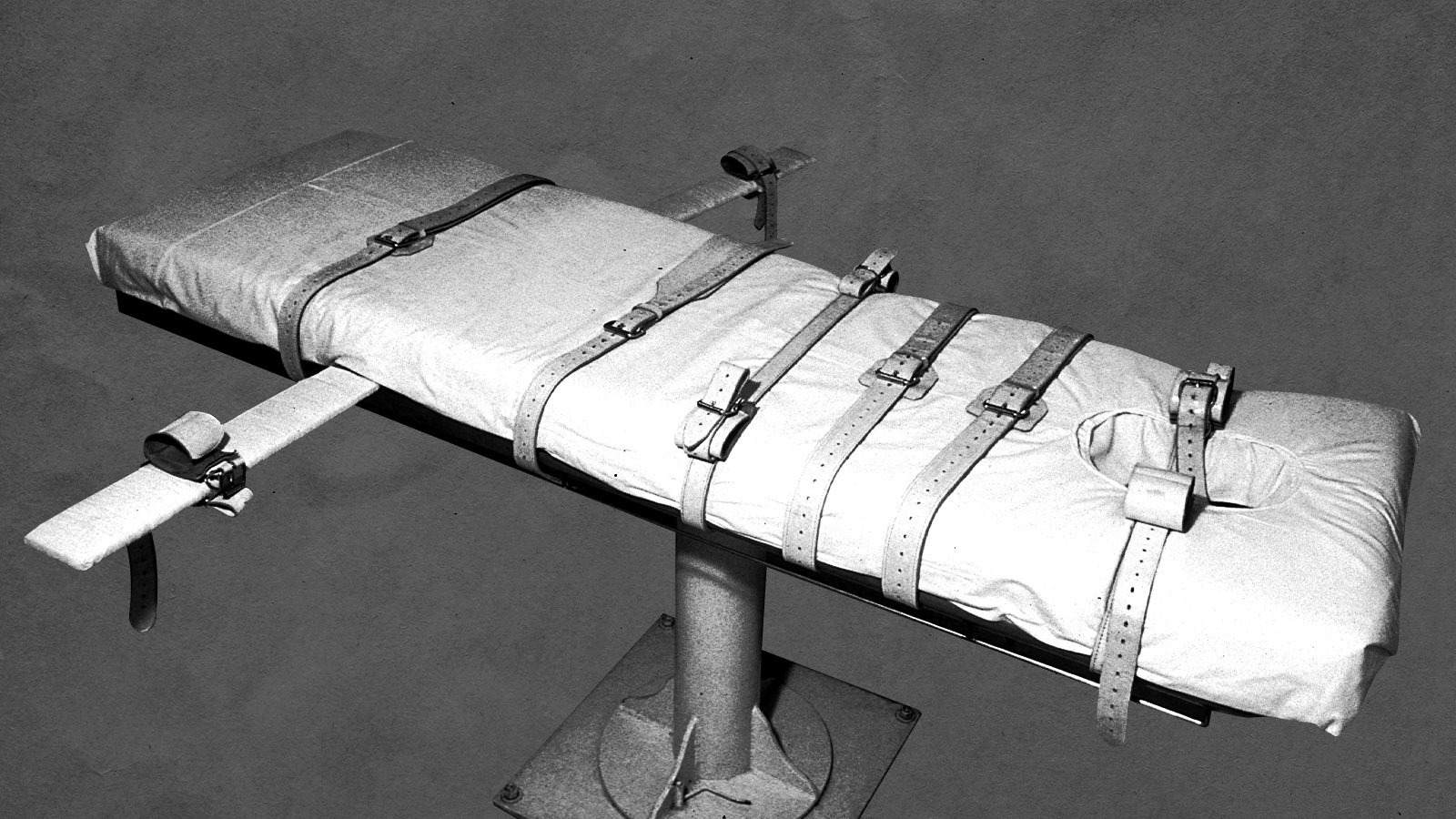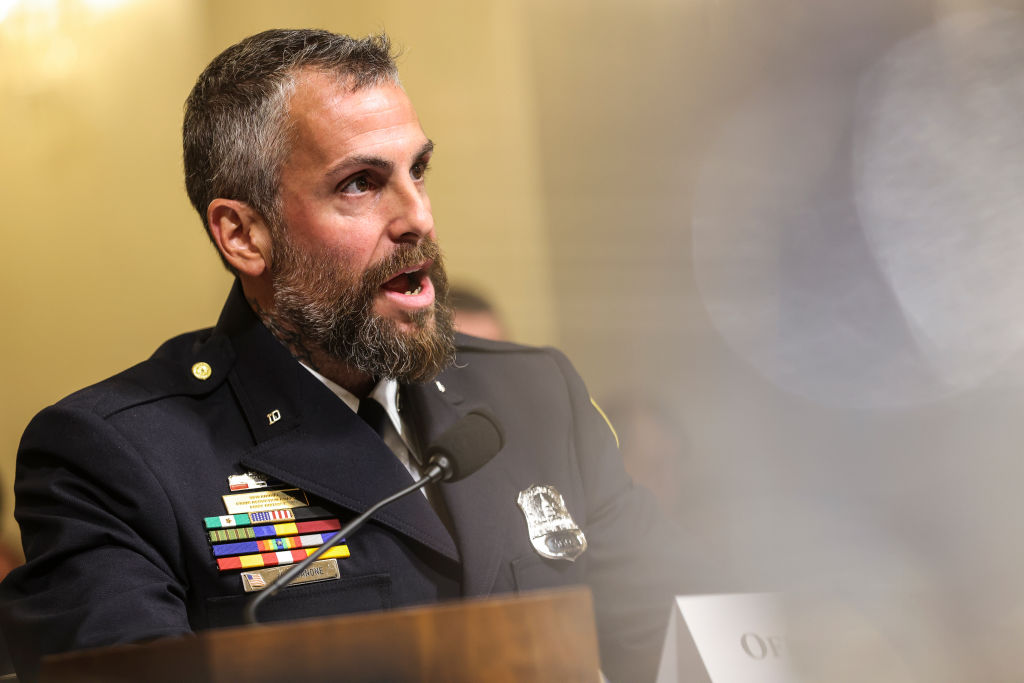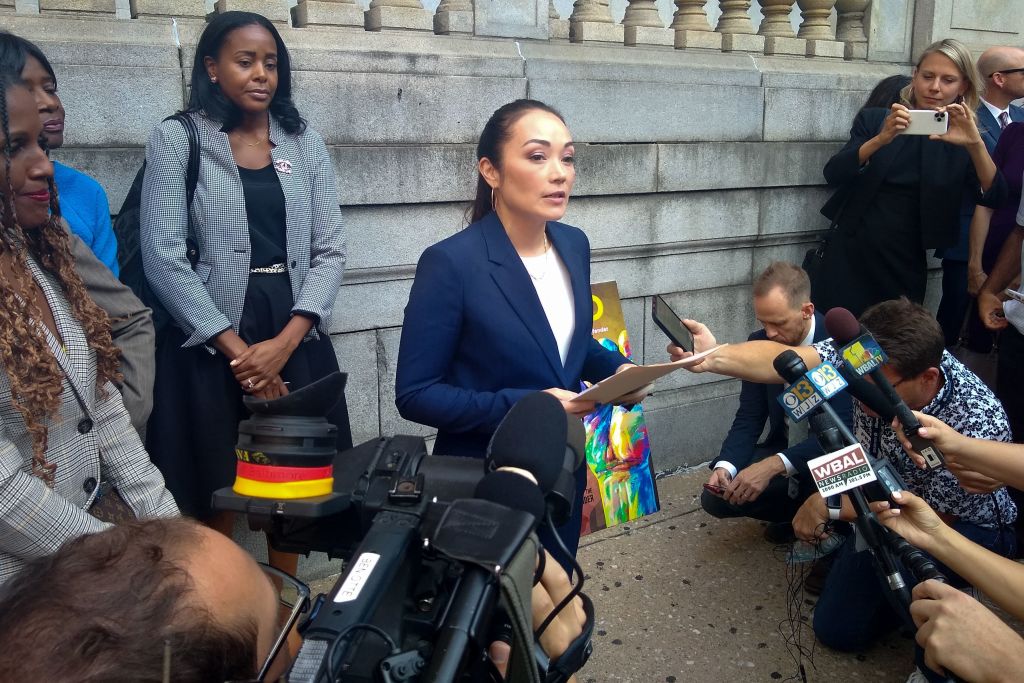Swearing in the UK: a colourful history
Thanet council's bad language ban is the latest chapter in a saga of obscenity

A free daily email with the biggest news stories of the day – and the best features from TheWeek.com
You are now subscribed
Your newsletter sign-up was successful
The Free Speech Union has condemned a local authority in Kent for imposing a "draconian" new order that threatens on-the-spot fines of £100 for swearing in the street.
Thanet District Council has adopted a Public Spaces Protection Order (PSPO) that bans "language or behaviour causing or likely to cause harassment, alarm or distress to any other person".
A long and colourful history
Swearing was made a criminal offence in Britain in the 1600s, when legislation described such words as "detestable sins". Then the Profane Oaths Act 1745 introduced a hierarchy of fines for the "horrid, impious, and execrable vices of profane cursing and swearing".
The Week
Escape your echo chamber. Get the facts behind the news, plus analysis from multiple perspectives.

Sign up for The Week's Free Newsletters
From our morning news briefing to a weekly Good News Newsletter, get the best of The Week delivered directly to your inbox.
From our morning news briefing to a weekly Good News Newsletter, get the best of The Week delivered directly to your inbox.
Bad language has also been the subject of curious etiquette. In "olden times", wrote Tanya Gold for the Evening Standard, "taverns would have a public bar, where you could swear", and "a lounge bar, where you could not".
A great deal changed during the 1960s. The abolition of censorship in that decade "gave free expression" to many words and phrases that "previously had been deeply taboo", said the BBC.
Appearing on a late-night live satire programme called "BBC-3" in 1965, Kenneth Tynan becomes the first man to say "f**k" on TV. The same decade also saw swearing begin to "make its way into the recording booth" of pop music, said Slate.
The word "c**t" first appeared in a British newspaper in 1987, recalled Unherd. It cropped up in the unlikely context of a cricket match report in The Independent after the word was used in a disagreement between England captain Mike Gatting and umpire Shakoor Rana.
A free daily email with the biggest news stories of the day – and the best features from TheWeek.com
More recently, there has been a backlash against swearing in public. In 2011, Peter Foot, chair of the National Campaign for Courtesy, told the BBC that if you want to swear "in your own room, that's fine" but "if you're in a place where you're in earshot of other people" it can be "very distressing".
The same year, officers in Barnsley were told to monitor the language of people out and about in the town centre. If any overheard profanity was judged to be potentially causing offence or intimidation, the officers could advise the individual to moderate their language; if that was unsuccessful, the officer was allowed to fine the person up to £80.
Thanet hits back
Flouting the new rule in Thanet will cost "sweary locals" £100 and must be paid within 28 days, said Your Local Guardian, but if the fine is paid in 14 days it will be reduced to £60.
But how successful the rule will be is open to debate. In July, when it was discussed at a Thanet District Council cabinet meeting, Cllr Rebecca Wing said "the police have told us they won't enforce it".
The Free Speech Union told The Telegraph that Thanet's PSPO was "the worst" it has seen, because it "effectively imposes a strict liability speech offence", with "none of the safeguards".
Make Thanet safe again
A local resident told Mail Online that it was "a bad idea because freedom of speech is very important" and another said a £100 fine is "a bit harsh". But another said that although "free speech is free speech", that "shouldn't include being abusive to people, horrible behaviour or swearing".
Commentators have spoken out against the development. "It just makes me want to go up to Thanet and swear", said Bev Turner on GB News, adding that she wanted to "walk up and down the street swearing”.
Noting that a council spokesman, said that banning swearing would make Thanet safer, Gold said that "he doesn't understand human nature".
But Labour councillor Heather Keen said that "antisocial behaviour can have a detrimental effect on people's enjoyment of the place where they live if it isn't dealt with".
Making Thanet "a safer and cleaner place to live in, work in or visit" is "a top priority for residents", she added, and the new PSPO is "a positive step towards this ambition".
Chas Newkey-Burden has been part of The Week Digital team for more than a decade and a journalist for 25 years, starting out on the irreverent football weekly 90 Minutes, before moving to lifestyle magazines Loaded and Attitude. He was a columnist for The Big Issue and landed a world exclusive with David Beckham that became the weekly magazine’s bestselling issue. He now writes regularly for The Guardian, The Telegraph, The Independent, Metro, FourFourTwo and the i new site. He is also the author of a number of non-fiction books.
-
 How the FCC’s ‘equal time’ rule works
How the FCC’s ‘equal time’ rule worksIn the Spotlight The law is at the heart of the Colbert-CBS conflict
-
 What is the endgame in the DHS shutdown?
What is the endgame in the DHS shutdown?Today’s Big Question Democrats want to rein in ICE’s immigration crackdown
-
 ‘Poor time management isn’t just an inconvenience’
‘Poor time management isn’t just an inconvenience’Instant Opinion Opinion, comment and editorials of the day
-
 The countries around the world without jury trials
The countries around the world without jury trialsThe Explainer Legal systems in much of continental Europe and Asia do not rely on randomly selected members of the public
-
 The Supreme Court case that could forge a new path to sue the FBI
The Supreme Court case that could forge a new path to sue the FBIThe Explainer The case arose after the FBI admitted to raiding the wrong house in 2017
-
 Should there be a legal obligation to act as a good Samaritan?
Should there be a legal obligation to act as a good Samaritan?Talking Point The moral and political maze of helping strangers in need
-
 Why is Alabama pausing its executions?
Why is Alabama pausing its executions?Speed Read Many states are struggling to carry out the death penalty
-
 Alex Jones ordered to pay nearly half a billion in Sandy Hook damages
Alex Jones ordered to pay nearly half a billion in Sandy Hook damagesSpeed Read
-
 Suspect arrested for 2017 murders of Delphi, Indiana teenagers
Suspect arrested for 2017 murders of Delphi, Indiana teenagersSpeed Read
-
 Jan. 6 rioter who dragged D.C. officer Michael Fanone into hostile crowd sentenced to 7.5 years in prison
Jan. 6 rioter who dragged D.C. officer Michael Fanone into hostile crowd sentenced to 7.5 years in prisonSpeed Read
-
 Serial's Adnan Syed has all charges dropped in light of DNA evidence
Serial's Adnan Syed has all charges dropped in light of DNA evidenceSpeed Read